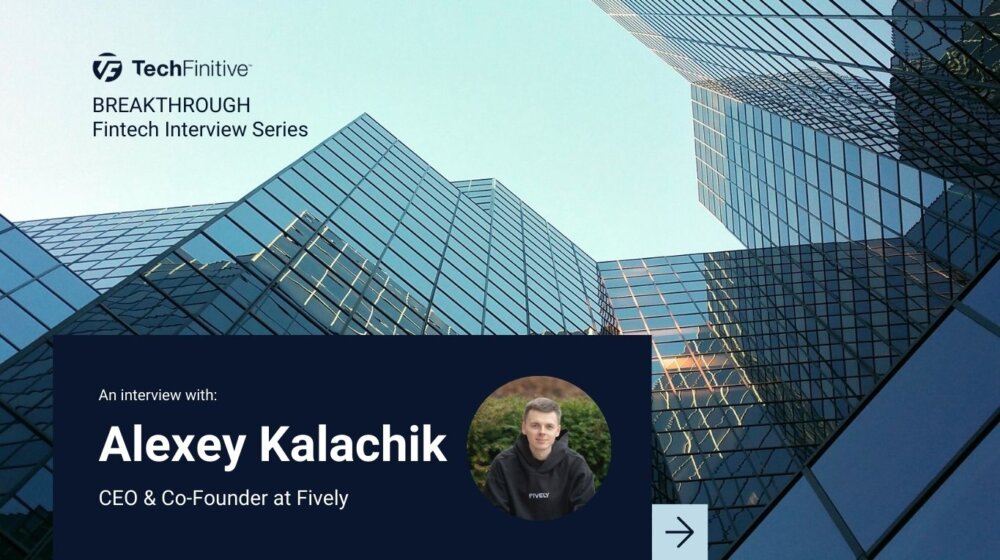
Monika Lindquist, CMO at Visual Art Group: “There’s often a misconception that marketing expenses are expenditures rather than strategic investments”
As Monika Lindquist, Chief Marketing Officer (CMO) at Visual Art Group, is keen to explain, human behaviour is fundamental to marketing. After all, every marketing campaign is there to prompt human beings to walk a certain path, ideally with a purchase at the end.
Where Monika differs from most CMOs is her background in psychology, and she brings that knowledge with her. “Empathy is the foundation of building emotional values into your brand resonating with individuals on a deeper level,” she explains.
“Authenticity is not just a buzzword for me,” she adds. “It’s a commitment to building relationships based on honesty and integrity.”
With this in mind, it’s well worth reading Monika’s thoughts on how AI is affecting marketing, whether that’s the mistakes she already sees happening or what she expects to see in the future.
One thing’s for sure: you can’t stand still in this game. To help you plan out your next steps, and for a better understanding of marketing’s role in driving businesses forward, we thoroughly recommend reading the full interview below.
Why Dust or Magic? That stems from a quote by legendary American advertising creative director, William Bernbach: “An idea can turn to dust or magic, depending on the talent that rubs against it.” (And if you’re wondering where you’ve heard the name, Bernbach was the inspiration behind Don Draper of Mad Men fame.)
Could you please introduce yourself to our audience? What motivated you to pursue a career in marketing, and how did you embark on your journey in this field?
I started studying psychology because I am interested in human beings, how the brain works, and why we really do what we do. How we can change behaviour. Habits. Why we do what we do.
By chance, I started working in marketing and realised that it was inspiring and motivating to be able to drive business objectives through marketing. Both marketing and psychology have a clear framework and understanding them creates huge opportunities to influence people’s decisions and thus drive business growth.
What are your thoughts on the escalating integration of AI in digital marketing and its potential influence on the future of marketing, Martech and social media?
I believe the growing integration of AI in marketing overall is an exciting evolution that holds tremendous potential for transforming the landscape. It’s like having a hyper-intelligent colleague who is not only fast at calculating and analysing, but also learns and adapts over time.
However, as we embrace this technological wave, it’s crucial to remember that behind every AI tool, there’s a human touch needed to interpret, adapt and enhance to create meaningful connections. The essence of authentic communication should never be overlooked. After all, behind every data point, there’s a human being with their own story, needs and desires.
I’m amazed at how many who are working with social media seem to think that ChatGPT can write their social media posts, without any editing. It loses the connection to the brand’s tone of voice and way of expressing itself. Leaving the reader indifferent to the content.
The future lies not just in the capabilities of AI but in how effectively we blend its capabilities with human insights and creativity. It’s a symbiotic relationship where technology amplifies our efforts, allowing us to focus on what truly matters – building genuine connections and resonating with our audience. So, while we ride the wave of AI innovation, let’s not forget the irreplaceable value of human intuition and the artistry that makes marketing an ever-evolving, deeply human discipline.
Related reading: What will the digital landscape look like in 2028?
How do you ready yourself for an AI-driven landscape as a marketing leader? What new skills do you need?
You don’t necessarily need new skills; it’s more about having a natural curiosity and a willingness to learn. The real question is whether you’re open to learning or if you think you already know everything. If it’s the latter, then you might not be the right fit.
When you look at each day individually, it might seem uneventful, but reflecting on a year shows how much can change. It’s about maintaining continuous curiosity, and always being open to seeing opportunities instead of obstacles.
Development comes through action, through doing a lot. Sure, you might make mistakes along the way, but that’s okay because each mistake likely teaches you something about what not to do.
Some might turn to text-based AI tools for answers, and that’s fine for getting basic responses. However, to truly excel, you need to go beyond that. You should use AI as a sounding board, a tool to make things even better.
AI tools can bring everything together, identifying what works and what doesn’t. But here’s the catch: unless you train and prompt AI effectively, it won’t elevate you beyond average. So, it’s not just about using AI; it’s about using it smartly to enhance your own capabilities.
Looking ahead to 2024, what AdTech trends do you expect to dominate?
I think Retail Media will become more than just a buzz. Retailers are actively establishing their advertising networks, seamlessly connecting online and physical channels. This shift toward targeted advertising is driven by cookies going away leading to retailers having access to a wealth of customer data, including purchase history and behavioural patterns enabling precise targeting within Retail Media for more relevant ad placements.
Programmatic advertising will play a crucial role, in enhancing the efficiency and effectiveness of ad campaigns. It enables the automated buying and selling of ad inventory in real-time. This means that ad placements within e-commerce platforms and in physical stores can be bought and sold programmatically, allowing advertisers to target specific audiences dynamically.
Consumers engage with brands across various touchpoints, and programmatic allows advertisers to create cohesive cross-channel campaigns to increase effectiveness ensuring that the consumer experience is seamless and consistent across different platforms.
Related reading: Harnessing data to shape the brand experience in a post-cookie world
How do you perceive programmatic advertising in today’s marketing landscape?
Continuing Retail Media. Programmatic advertising will play a crucial role, in enhancing the efficiency and effectiveness of ad campaigns. It enables the automated buying and selling of ad inventory in real-time. This means that ad placements within e-commerce platforms and in physical stores can be bought and sold programmatically, allowing advertisers to target specific audiences dynamically.
Consumers engage with brands across various touchpoints, and programmatic allows advertisers to create cohesive cross-channel campaigns to increase effectiveness ensuring that the consumer experience is seamless and consistent across different platforms.
What core values have played a pivotal role in shaping your approach to marketing and communication?
My approach to marketing and communication has been deeply shaped by three core values: empathy, authenticity and advancement.
Firstly, empathy plays a pivotal role in my strategy. With a background in psychology, I’ve developed a profound understanding of human behaviour, motivation and decision-making. This insight allows me to connect with people on a personal level, understanding their needs and desires. Empathy is the foundation of building emotional values into your brand resonating with individuals on a deeper level.
Authenticity is another fundamental value. I firmly believe in the power of genuine communication to build trust and credibility. Authenticity is not just a buzzword for me; it’s a commitment to building relationships based on honesty and integrity.
Lastly, advancement is a driving force in everything I do. Recognising the dynamic nature of the industry, I embrace the fact that I don’t know everything and strive to bring advanced ideas to the forefront. I believe in constant development and progress.
What major hurdles have you encountered as a marketing leader, and how did you surmount them?
I’ve encountered a variety of hurdles, but one significant challenge has been changing the perception of marketing. It’s not only promotional or sales-driven activities.
In the business landscape, there’s often a misconception that marketing expenses are expenditures rather than strategic investments.
Marketing plays a fundamental role in driving the success and growth of a company.
What piece of advice would you offer to fellow marketing leaders that has been particularly beneficial to you personally?
Engage cross-functional in the organisation to gain insights and an understanding that marketing is a key driver of business growth. Emphasise the importance of aligning marketing efforts with business objectives.
It’s crucial to convey that marketing goes beyond social media posts and promotional activities; it’s about strategically investing in the growth, reputation and future success of the company.
NEXT UP

Alexey Kalachik, CEO & Co-Founder at Fively: “The potential for digitalisation within insurance is enormous”
We interview serial entrepreneur Alexey Kalachik, CEO & Co-Founder at Fively, on the future of fintech and what makes this space so exciting for startups.

IBM bolsters AI push with Microsoft Copilot launch
In a bid to boost its AI offering, IBM Consulting will enable enterprises to create and manage AI copilots – including Copilot for Microsoft 365

Andrew Kay, Director of Systems Engineering APJ at Illumio: “The most worrying development with ransomware is that it has evolved from simply stealing data to impacting IT availability”
Andrew Kay, Director of Systems Engineering APJ at Illumio, has 20 years’ experience helping organisations strengthen their cyber resilience. We interview him as part of our Threats series on cybersecurity.